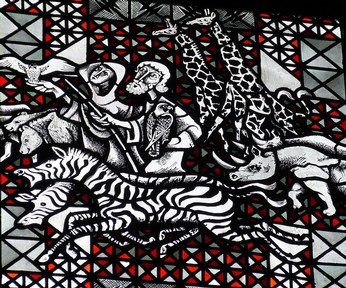Quiz Answer Key and Fun Facts
1. Abraham gave Abimelech seven ewe (female) lambs. What was their importance? (Genesis 21)
2. If someone stole a sheep, how many sheep was he required to pay to the person whom he robbed? (Exodus 22:1)
3. What woman did Nathan compare to a ewe lamb? (2 Samuel 12)
4. Which type of lamb did the LORD say was appropriate for the Passover lamb? (Exodus 12)
5. The prophet Isaiah said that which of these would dwell peacefully with the lamb? (Isaiah 11)
6. What group of Israelites, who were also in charge of the tabernacle, were given a lot of animals, including sheep? (Numbers 31)
7. Jacob asked his father-in-law, Laban, if he could use some of Laban's sheep for wages (in other words, the sheep would serve as Jacob's paycheck for his labor for Laban).
Based on the New American Standard Bible, what color lambs did Jacob take? (Genesis 30:31-33)
8. "Hear the word of the Lord, You rulers of Sodom; Give ear to the instruction of our God, You people of Gomorrah. 'What are your multiplied sacrifices to Me?' Says the Lord. 'I have had enough of burnt offerings of rams And the fat of fed cattle; And I take no pleasure in the blood of bulls, lambs or goats.'" (New American Standard Bible)
These verses come from which book?
9. Which two groups of people did Jesus metaphorically call sheep? (Matthew 10:5-6 and John 10:26-27)
10. "Mary Had a Little Lamb" is a nursery rhyme based on a girl named Mary Sawyer, but one can possibly see Biblical ideas in the title. There is a New Testament figure, born from a Mary, who is called both the Good Shepherd and the Passover Lamb, the Lamb of God. Who is this Mary's little Lamb?
Source: Author
Ceduh
This quiz was reviewed by FunTrivia editor
looney_tunes before going online.
Any errors found in FunTrivia content are routinely corrected through our feedback system.

